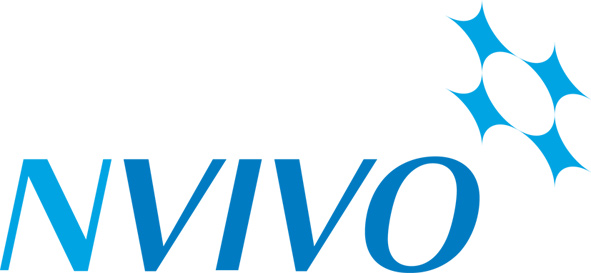
- 9.30am - 11.00am: Zoom session (overview)
- 11.00am- 11.15am: Break
- 11.15am- 12.45pm: Zoom session (exercises incl.)
- 12.45pm- 1.45pm: Lunch
- 1.45pm - 3.15pm: Zoom session (exercises incl.)
- 3.15pm - 3.30pm: Break
- 3.30pm - 4.30pm: Zoom: Question/answer/revision
Nicola McNeil is an Associate Professor of Management from the School of Business, Law & Entrepreneurship at Swinburne University of Technology in Melbourne. Nicola is currently working on several research projects in the areas of gender and work and the impact of high-performance work practices on employee wellbeing. She has received research grants and consultancies from the Canadian Social Sciences and Humanities Research Council, the Australian Federal Government, VicHealth, and a variety of industry partners and not-for-profit organisations. Her research has been published in leading journals including the Journal of International Business Studies, the International Journal of HRM and European Sport Management Quarterly.
Nicola teaches units in the fields of human resource management and research methods to undergraduate and postgraduate students. She is also an instructor for the Australian Consortium of Social and Political Research Inc (ACSPRI) and offers courses on the use NVIVO and mixed methods research designs.
In this 5 day course, participants will learn how to analyse qualitative data using NVivo. The course takes a holistic view of the analysis of qualitative data using computer assisted techniques. We will examine not only the mechanics of driving the NVivo software package, but also how to plan for the collection of data; preparation of data for analysis; as well as the analysis of the data. They will also be introduced to advanced analysis tools including those for theory building, validation and presentation of findings.
Participants will explore applications of the software to their own research projects. Sample data will be provided but participants should bring their own data sets, if they have them, and/or copies of articles and research reports relevant to their field of study.
The target audience for this course is researchers in the social sciences and related fields that draw on qualitative data. The course is an introductory level course, and would suit researchers, (including postgraduate students) with limited experience in qualitative methods and computer-assisted analysis techniques and processes.
Day 1: Getting to know the NVivo working environment.
- creating, saving and backing up NVivo Projects;
- gathering and preparing data for analysis in NVivo;
- working with data sources, including text, audio, pictorial and video;
- Organising and managing data sources.
Day 2: Managing and thinking about data and recording reflections.
- Coding qualitative data;
- the role of journals, memos and an audit trail;
- using memos, links and annotations to reflect on and record ideas about data; documenting conversations, themes and threads;
- exporting memos to Microsoft Word; coding data in media other than text; comparing coding and linking as tools for making meaning;
- introduction to framework matrices.
Day 3: Different approaches to coding and analysis
- Using automated coding processes to search and code text of articles; introduction to word frequency queries and cluster analysis;
- how bibliographic packages interface with NVivo;
- using NVivo to assist with visualising themes, conceptualising the literature and identifying gaps in the current knowledge base.
Day 4: Advanced analysis techniques
- Classifying sources and nodes; ways of representing demographic characteristics and other attributes;
- advanced coding procedures;
- introduction to advanced find and query functions including applications of matrix coding queries;
- analysis of quantified qualitative data.
Day 5: Reporting your results and other software applications (we will conclude at 12.45 with private consulations in the afternoon)
- priciples for writing up your qualitative method and analysis;
- using Leximancer to compliment your NVivo analysis;
- reviewing other computer-assisted qualitative data analysis software offerings, including Atlas.ti, Transana and MAXQDA;
- Private consultations as required.
Nvivo 12 for Windows will be used for this course
NVivo for Macs will not be supported. Please ensure you have access to NVivo 12 for Windows.
Completion of an introductory ACSPRI course in qualitative research techniques or an equivalent tertiary course is required. Alternatively a reasonable level of experience and familiarity with qualitative data analysis procedures would be acceptable. Efficiency in using Windows based software is essential. No prior knowledge of NVivo is required.
The instructor's bound, book length course notes will serve as the course text.
Other reading:
- Edhlund, B., and McDougall, A. (2020). NVivo 12 Essentials. London: Lulu.
- Jackson, K., and Bazeley, P. (2019). Qualitative Data Analysis with NVivo (Third edition). London: Sage.
- Saldana, J. (2016). The Coding Manual for Qualitative Researchers (Second edition). London: Sage.
Q: Do I have to have used Nvivo before?
A: No prior knowledge of Nvivo is required.
Q: Do I need a background in doing qualitative research?
A: It helps significantly to have an understanding of what is involved in analysing qualitative data before taking this course.
We got through 5 days of heavy content in an interactive and engaging way - the presenter did really well! (Summer 2021)
The online sessions were actually very effective. The presenter was very conscious of the limitations of online access and reduced interaction that occurs in the face to face setting. The presenter provided ample opportunity to ask questions, review activities etc. which was helpful. (Summer 2021)
Went from zero knowledge of NVIVO to feeling very confident. (Summer 2020)
Working on projects is a great way to interpret the learning. The course was well structured between listening and doing. (Summer 2019)
Nicola is AMAZING she explains the applications of technical information really well. Very rich in terms of learning. (Summer 2019)
Good background knowledge given which helped structure my thinking. (Summer 2018)
I came with some basic knowledge of coding in NVIVO but had not done any analysis. I now feel I could set up a new project in a robust and useful way and undertake analysis. The instructor and students both helped to answer my queries which was just great. (Winter 2016)
It was well balanced and moving between activities kept my interest. The practical exercises and sample project were very important in consolidating learing. (Winter 2016)
The course introduced me to applied qualitative design which is extremely helpful at a current stage in my career; qualitative research at work and a PHD proposal. (Winter 2015)
The instructor's bound, book length course notes will serve as the course text.
The notes will be posted to your nominated 'shipping address' in advance.
